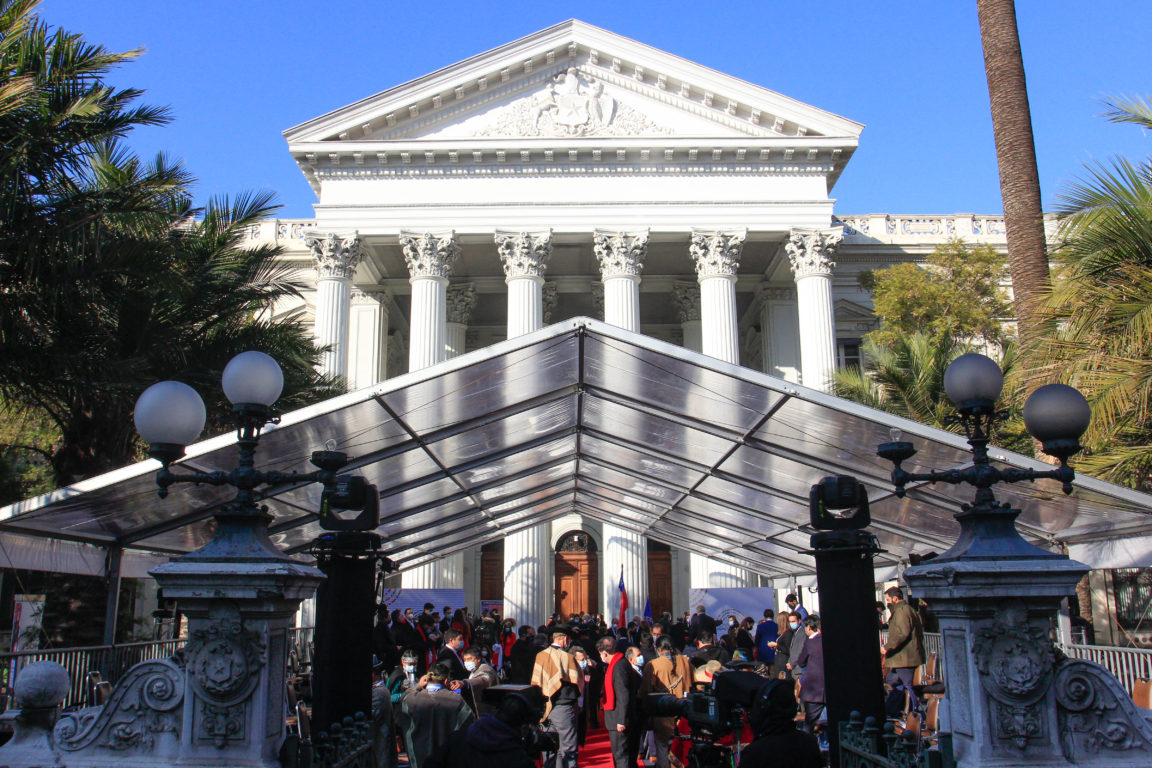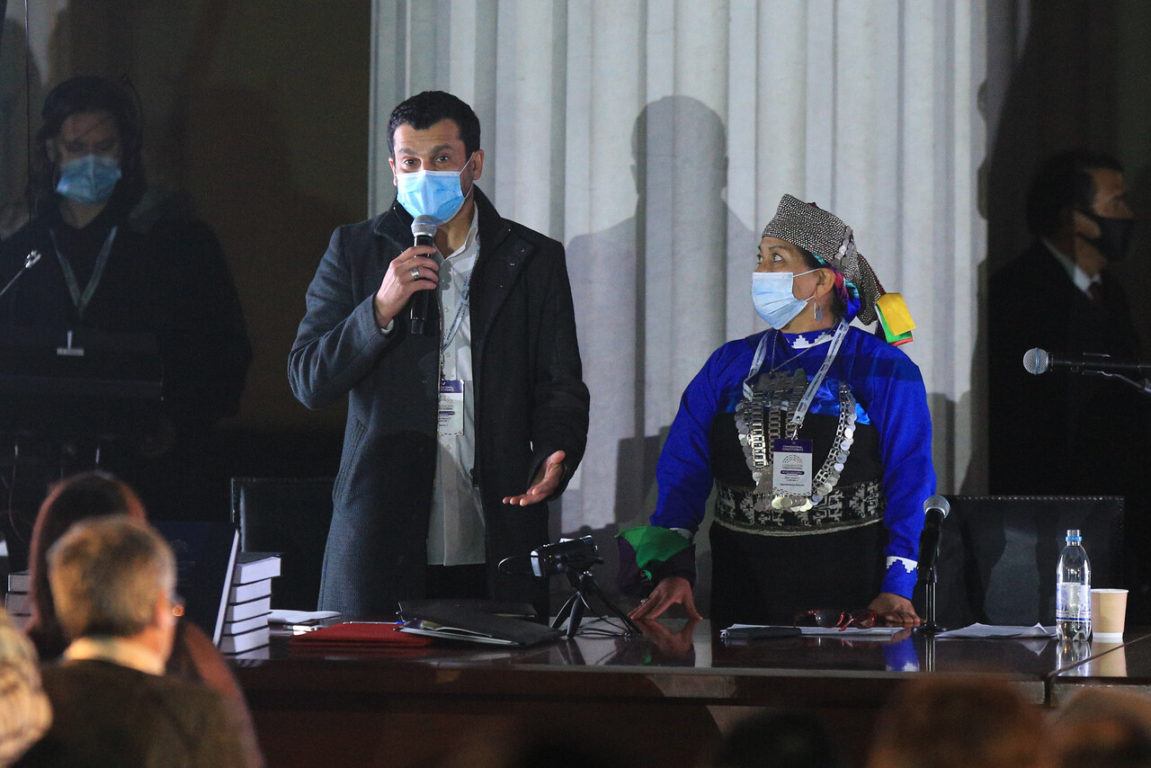After months of protests, a historic referendum and a mega-election, Chile began Sunday the road to draft a new Constitution.
The current Charter is considered by many to be a relic of Gen. Augusto Pinochet’s dictatorship (1973 – 1990).
The text was introduced in 1980 and even though it has been amended several times, at its core it still enshrines the neoliberal values the regime fostered.
He seized power in a coup d’état engineered by the United States to overthrow president Salvador Allende, America’s first democratically elected marxist leader.
For 17 years, Pinochet ruled Chile with an iron fist and with the help of the University of Chicago he was able to transform the national economy.
While it is true that poverty figures decreased, the new model helped a selected few to profit from the privatisation of public companies, education, healthcare and the pension system, among other fields.
Natural resources, even water, were up for grabs, and they still are to this day.
After the end of the regime, the centre-left governed uninterruptedly from 1990 to 2010, but the country the dictatorship shaped remained mostly unchanged.
That all came crashing down in early October 2019. A fare hike in the Santiago Metro angered secondary school students.
Five days of public unrest ended on 18 October with a “social explosion” which triggered the political agreement that allowed the constitutional referendum to take place.

Elisa Loncón
In May, Chileans went to the polls in a momentous mega-election.
Apart from local council members and mayors, the country elected regional governors for the first time in its history, as well as the 155 delegates in charge of drafting a new Constitution.
With gender parity and indigenous participation guaranteed by Congress, 17 seats were alloted to First Nations.
Tricel, the organism in charge of certifying elections, ratified the results on 15 June.
Later, president Piñera ordered the group to rendezvous for a first session in the old Congress building this Sunday, at 10 am.
Marches, individual engagements, protests and clashes with the police delayed the beginning of the ceremony.
Left-leaning delegates even booed the national anthem asking for freedom for those in police custody since the 2019 unrest.
Finally, after two rounds, Elisa Loncón was elected president of the Constitutional Convention.
Loncón, a Mapuche linguist and a teacher of English, holds a PhD in Humanities from Holland’s Leiden University and a PhD in Literature from Chile’s Catholic University.
Besides, in Mexico, she completed a master’s in Linguistics at the National Autonomous University.
In her victory speech, Loncón thanked those who chose her and promised to work for a fairer country, with focus on First Nations issues.
Loncón’s win was unquestionable: 96 people voted for her after receiving the support of the left, the centre-left and those delegates who ran independent campaigns, but with the help of traditional parties.

After Piñera’s controversial second stint, cabinet scandals, the 2019 protests and Pinochet’s shadow over the coalition, the right-wing failed to win a third of the seats.
That means the right will not be able to exert influence when voting as every decision needs to be adopted with a two-third majority, in line with the 2019 political agreement.
From now, the Constitutional Convention will have up to a year to deliver a proposal.
That text will be subject to another plebiscite, with compulsory voting, 60 days after the group hands over the document.







 Enviando corrección, espere un momento...
Enviando corrección, espere un momento...

